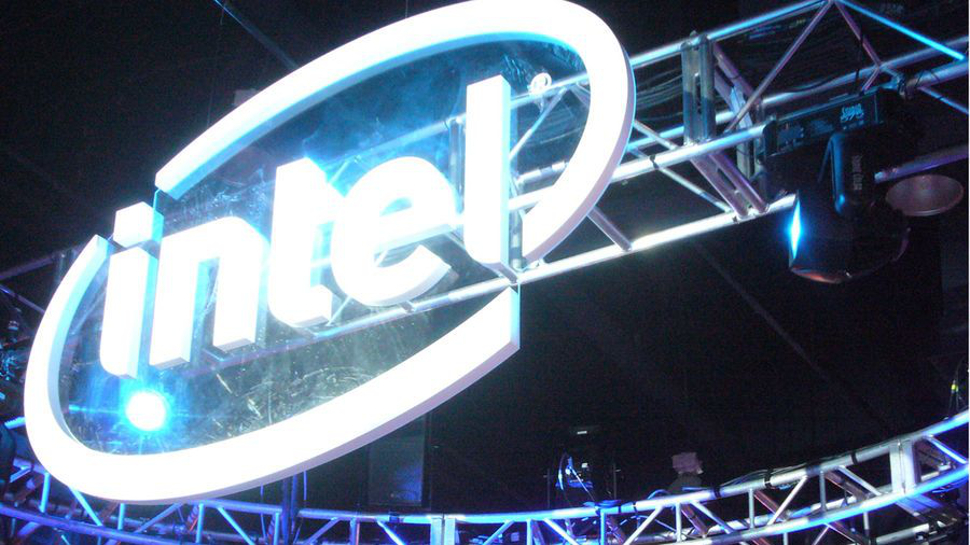Intel admits it won’t catch up with AMD’s 7nm chips until 2021
Moore’s Law should return as well

Update: Intel has released a statement clarifying Bob Swan's comments, and arguing that its 10nm chips will be comparable with AMD's current 7nm process. Meanwhile, Intel promises that its 7nm that will arrive in 2021 will provide 2x scaling.
“There’s been some confusion around node names, because over the years we’ve held ourselves to a stricter standard than others. But we want to set the record straight. Our 10nm node is comparable to the foundries’ 7nm nodes today. Our 7nm process, which is on track for a 2021 first-product introduction, will deliver 2X scaling on top of that. So, purely from a process standpoint, we are neck-and-neck with the foundries. When you add to that our innovations in packaging, interconnect, architecture and software, it’s clear we have what it takes to deliver industry-leading products today and in the future.”
As Intel has not yet released its 10nm consumer processors, we cannot verify its claims just yet – but we're looking forward to putting them through their paces soon.
Original story follows...
Intel has explained how it struggled to bring 10-nanometer processors to market, while also admitting that we won’t see its 7nm chips until 2021.
Meanwhile, its competitor AMD has recently released 7nm chips (such as the AMD Ryzen 9 3900X).
- Intel’s first mainstream octa-core CPU is a beast, but it's not cheap
- AMD vs Intel: which processors are better?
- AMD Ryzen processors are now outselling Intel in Asia
The revelations come from Intel CEO Bob Swan, who said at Fortune's Brainstorm Tech conference in Aspen, Colorado, that Intel’s goal to have a 2.7x transistor density improvement in its 10nm chips compared to current 14nm chips was too ambitious.
Get daily insight, inspiration and deals in your inbox
Sign up for breaking news, reviews, opinion, top tech deals, and more.
"At a time when it gets harder and harder, we set a more aggressive goal. From that it just took us longer," Swan said.
Because of this, Intel has been slow to move on from 14nm. This has led many people to suggest that – for Intel at least – Moore’s Law is dead.
Moore is less
Moore’s Law, which is named after Intel co-founder and former CEO Gordon Moore, states that transistor density in computer chips doubles every two years. It’s been a driving principle behind Intel’s processor strategy, and many people credit it with the fast pace of technological advancements we’ve seen in the past.
Because of Intel’s delays with 10nm, it has fallen behind this schedule. However, with 10nm out this year and 7nm out by 2021, Intel is hoping it can catch up with Moore’s Law.
Swan admits that the 2.7x scaling for 10nm was both too ambitious and too complicated. He also explains how Intel made an error when it “prioritized performance at a time when predictability was really important”.
However, as Swan notes, “The short story is we learned from it, we'll get our 10nm node out this year. Our 7nm node will be out in two years and it will be a 2.0X scaling so back to the historical Moore's Law curve.”
You can watch a recording of Swan's appearance on Fortune's website.
So it looks like we’ll finally see 10nm chips from Intel this year, while 7nm will have to wait until 2021. That’s a long time considering both AMD and Qualcomm have 7nm chips out right now. But will Intel be happy with ceding any performance advantage 7nm brings to its two biggest competitors for that long?
- Best processors 2019: the best CPUs for your PC
Via PC Gamer

Matt is TechRadar's Managing Editor for Core Tech, looking after computing and mobile technology. Having written for a number of publications such as PC Plus, PC Format, T3 and Linux Format, there's no aspect of technology that Matt isn't passionate about, especially computing and PC gaming. He’s personally reviewed and used most of the laptops in our best laptops guide - and since joining TechRadar in 2014, he's reviewed over 250 laptops and computing accessories personally.